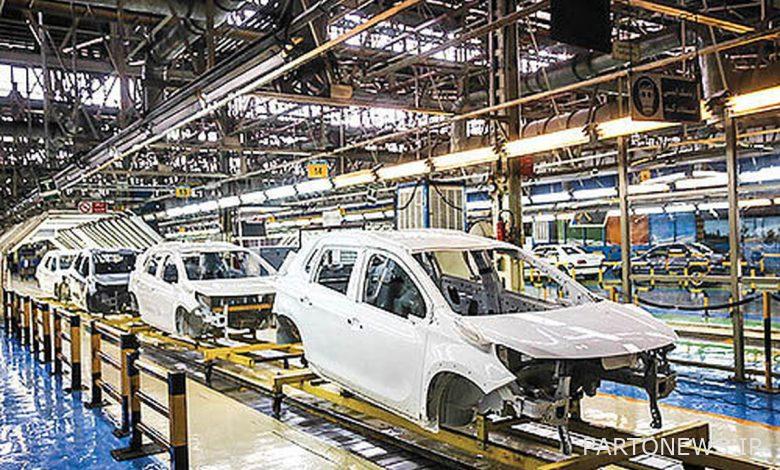Inside the story of handing over car manufacturers; They are privatized, but the Ministry of Security tells them what cars to produce

Online Economy – Parham Karimi; The dreams of Sanat Khodro did not end with Fatemi Amin’s 7 plans, and in April this year, after Ebrahim Raisi’s visit to Iran Khodro, 8 more plans and another dream were added to the list of programs that, according to the officials and their announced numbers, until 1404, Sanat Khodro It puts our car on par with big car manufacturers like Toyota and Hyundai.
Among all the promises made by Minister Samat and the President for the automobile industry, perhaps the oldest and one of the most important is the privatization of two domestic automobile manufacturers, i.e. Iran Khodro and Saipa. This promise is perhaps the most important automotive promise of the President and Minister Sammat because for many years, experts believe that the reason for the current situation in the automobile industry and market in Iran is that it is a state-owned company and the government’s involvement in all its sectors. Being a government that by applying mandated policies such as mandated pricing and selecting senior managers is making the situation of the country’s automobile industry more chaotic day by day.
But this time, according to the received news and the efforts made in this regard, it seems that the discussion of the transfer of the shares of these two major car manufacturers of the country seems serious; In such a way that about 6 and 17% of Iran Khodro and Saipa shares have been included in the list of companies subject to transfer by the Privatization Organization in 1401 based on the 5th resolution of Ardibehesht Board. The Iran Khodro sub-group will not be sold separately, and the privatization of Iran Khodro may come to a complete end with the sale of 77.77% shares of Iran Khodro.
But the noteworthy point, next to all the news of the handover of the country’s major car manufacturers, is the continuous planning of the Ministry of Security for the coming years of these two car manufacturers. The interference that has become more visible these days with the announcement of the joint construction of a commercial vehicle by Iran Khodro and Saipa by the officials of the Ministry of Security and it is not clear if the Ministry of Security wants to play a supervisory role by handing over the shares of these two car manufacturers, why is it still for Do these two automakers determine the task?
Faraj Elahi, an expert in the automotive industry and also a member of the academic staff of the University of Science and Technology, told Economy Online about these contradictions of the Ministry of Silence: “It seems that the handover of these two car manufacturers as previously announced has been ruled out.” The Ministry of Safety does not want to have only a supervisory role and wants to be the strategist of these two car manufacturers to control this industry.
According to him, the problem of the country’s automobile industry is not its government ownership, and many countries that have an advanced automobile industry are also owned by their governments. He went on to say: I don’t see any problem with the government being the shareholder of Iran Khodro and Saipa, the main problem is the interference and directive policies that the government imposes on car manufacturers. A policy maker can be a strategist and car manufacturers can act on it while not interfering in car manufacturers’ decisions.
Regarding the fate of car manufacturers after possible privatization, he said: First of all, handing over companies while they are losing money is not economical in any way, and the next thing is the destruction of the research and development process after handing over. The private car manufacturers that are active now are only assemblers, and domestication has pushed less than 30% of them towards CKD and CBU. In this regard, this automobile industry expert said that if our car manufacturers are handed over, the process of research and development will practically stop, and with the sale of the land and facilities of this sector, they will become only assemblers.
These debates and speculations intensified with the announcement of the assembly and transfer of technology of imported cars and the decision of the Ministry of Security to build a car worth 150 to 200 million by the joint production line of the two currently state-owned car manufacturers also points to the fact that the Ministry of Security is still willing, at least in the role The planner of car manufacturers should be present

